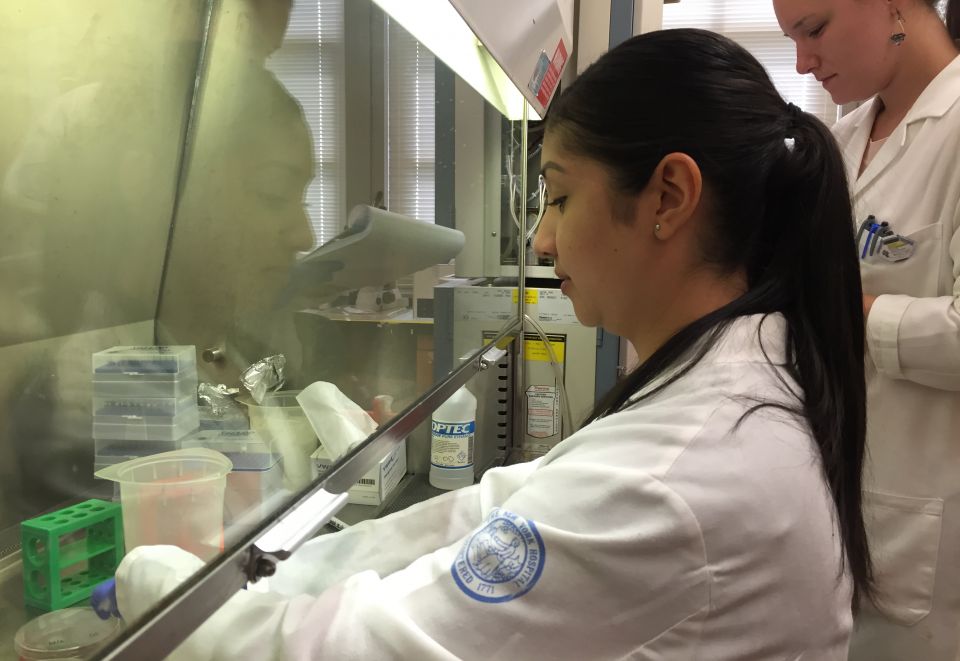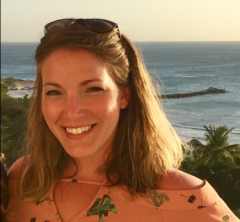
Overview
Pharmacology is the science of drugs, their chemical and biochemical properties, and their interactions with live cells, tissues and organisms. In the past 60 years, pharmacology has changed biology and medicine dramatically. Diseases are cured, pain is relieved and formerly fatal illnesses are arrested due to the discoveries made in pharmacology laboratories. Important questions have been answered by basic science, but many remain unsolved.
The scientific foundation of the Pharmacology PhD program at Weill Cornell Graduate School trains students in areas of medical sciences, biochemistry, chemical biology, signal pathways and more! The program's mission, facilitated by the broad scope of research conducted by the its faculty, is to provide students with the foundation necessary for pursuing research activities in cancer pharmacology, the neurosciences, cardiovascular pharmacology, toxicology, clinical pharmacology, proteomics, metabolomics, drug design and synthesis, and translational research.
The research activities of the program's faculty are broad and include cancer pharmacology, neurobiology, cardiovascular pharmacology, drug metabolism, toxicology, proteomics, receptors and signal transduction, drug and alcohol addiction research, and drug design and synthesis. Some of the research focuses on developing and evaluating novel therapies for a variety of diseases, and several faculty members have clinical involvements at Weill Cornell Medical College (WCMC) or Memorial Sloan-Kettering Cancer Center (MSKCC). This allows students in the Pharmacology Program to perform research that will result in better or new therapies for serious medical conditions such as cancer, epilepsy, neurodegenerative disorders, addictive and mental health disorders, infectious diseases, pain, and heart disease.
Pharmacology students have ample opportunities to improve their scientific communication skills, both by writing research papers and presenting their research data at laboratory meetings, the program's annual retreat and national scientific meetings. The program provides supportive, spirited colleagues along with a collegiality that helps prepare students for productive research careers in academia, government or industry.
Additional information is available at the Pharmacology graduate program web site.
Related Links
Program Requirements
Admissions
A baccalaureate degree with a strong background in the natural sciences and/or health sciences is required for acceptance into the Pharmacology program. For applicants to the Pharmacology program, GRE scores are optional. If you have GRE scores, please list your GRE scores in the application. Additionally, official scores must be sent directly to the Weill Cornell Graduate School of Medical Sciences by the Educational Testing Service. The Institution Code Number is 2119. Please visit http://www.ets.org/gre for more information and to register for the test if you would like to add your GRE scores to your application. Applicants whose native language is not English are required to take the TOEFL examination. See Apply Online for application procedures.
Becoming a Doctoral Candidate
In the first year, students complete the core academic curriculum; in their second year, they complete elective courses. More information about Pharmacology program courses is available at Courses.
In addition to coursework, students participate in bi-weekly student-run Pharmacology Journal Clubs, the annual program retreat, and the annual Vincent du Vigneaud Research Day. Students are also required to attend all Pharmacology program seminars and must pass the Pharmacology Seminar Course throughout their tenure as graduate students.
Three laboratory rotations are required of each student. The rotations provide the opportunity to participate in the diverse research activities available within the program. This experience is designed to assist the student in selecting major and minor sponsors for his/her thesis research.
Each student typically selects a thesis lab and major sponsor (thesis advisor) by the end of the first quarter of the second year. After choosing a thesis lab, the student selects a Special Committee, consisting of the major sponsor and two minor sponsors, chosen from among members of the Graduate School faculty with expertise in the student's thesis research area.
The Special Committee meets at least once a year to discuss research progress and future research directions with the student. The Special Committee also serves as the core group of examiners for the student's Admission to Candidacy Exam (ACE) and, typically, their thesis defense examination.
The ACE consists of two parts: a uniform written exam and an oral exam, which includes discussion of a written research proposal. A student typically takes this exam by April 1st of his/her second year. The ACE provides an opportunity for the student to demonstrate that he/she has attained the breadth of knowledge required to continue in the PhD program and is prepared to undertake full-time thesis research. When the student passes the ACE, he/she is considered a PhD candidate.
PhD Research and Degree
After completing the ACE, the student's annual (or more frequent) meetings with the Special Committee provide the forum to review progress and agree upon future research directions. The Special Committee (Thesis Advisory Committee) also oversees development of the thesis.
Thesis research is typically completed in the fifth year in the program. While working full-time in the thesis laboratory and developing the thesis, the student continues to participate in Pharmacology Program activities.
The culmination of the student's successful progression through the program is the final examination (the "defense") and certification by the Special Committee that the thesis represents an official piece of research that satisfies Graduate School requirements for a PhD degree.


